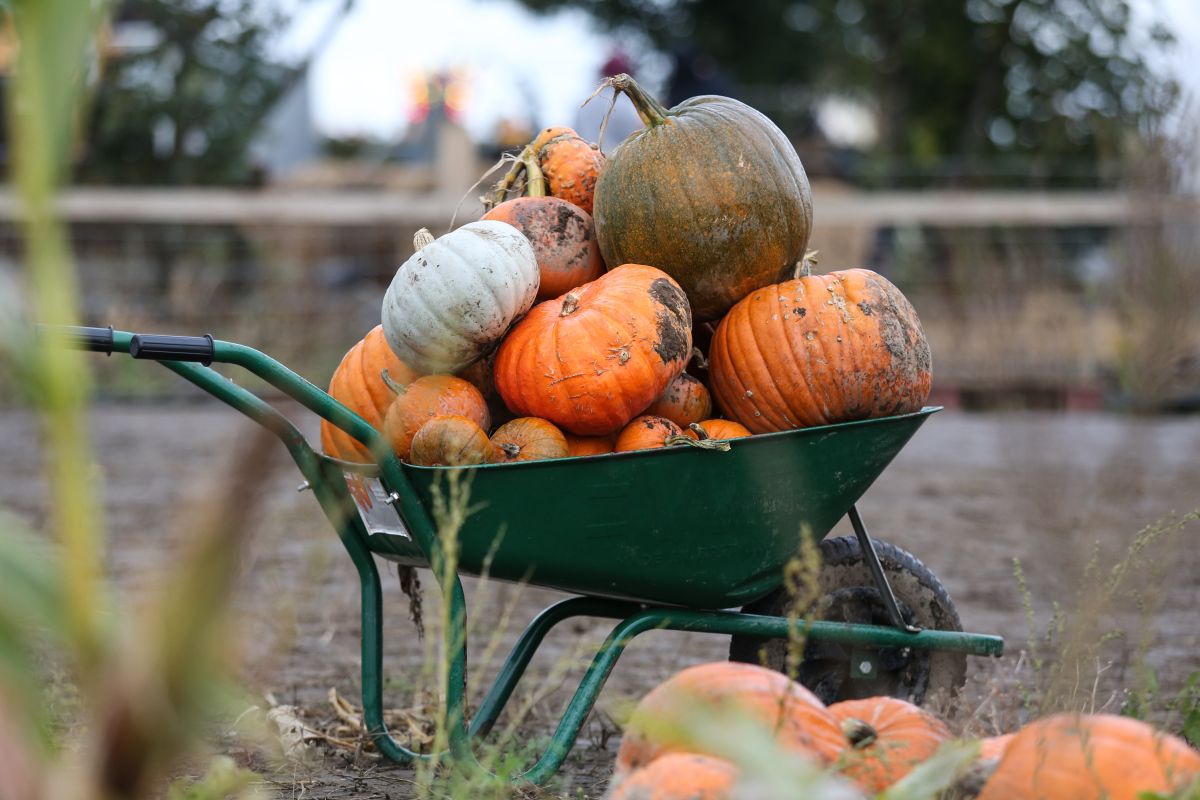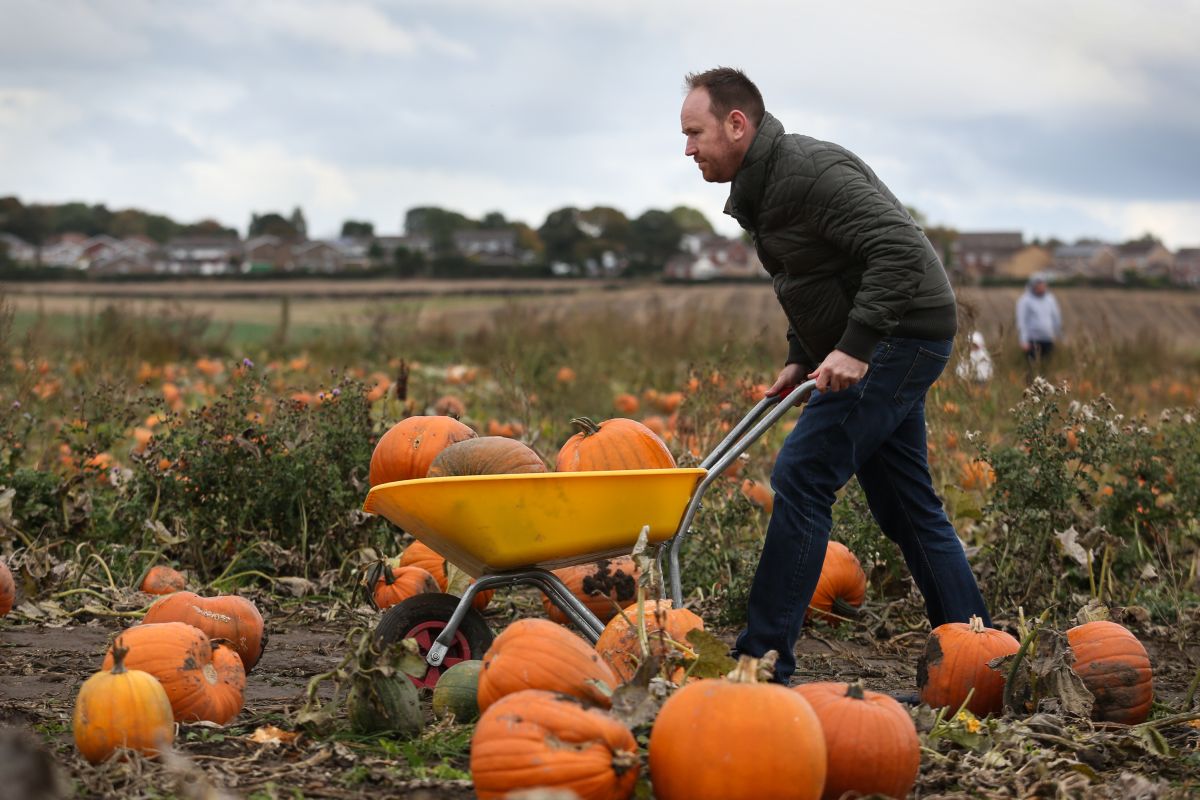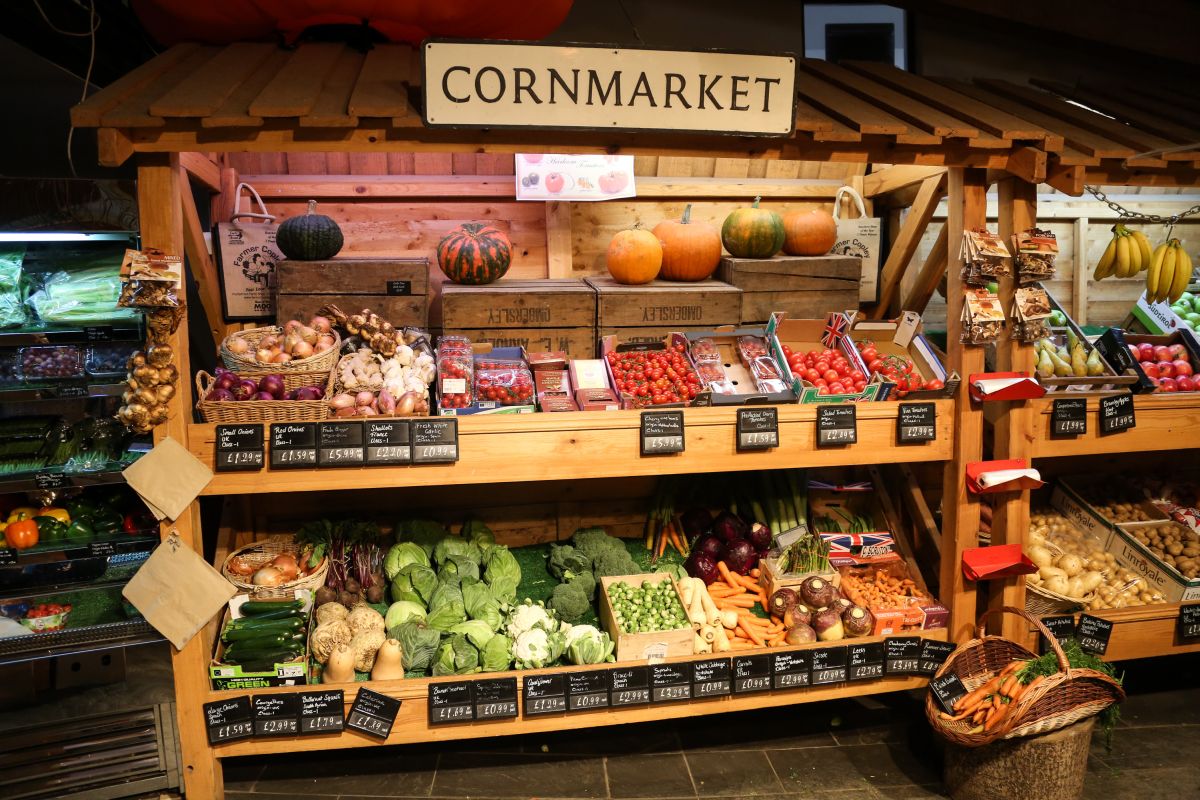
When it comes to diversification Farmer Copleys is carving out a niche.
The farm, near Wakefield, West Yorkshire, has been running its annual pumpkin festival for seven years and has seen a rapid rise in popularity every Halloween.
Visitors are welcomed to pick their own pumpkins from a variety of different colours and sizes straight from the field.

Rob Copley, director of Farmer Copleys, said he got the idea whilst visiting farms in America and has since gone on to create the biggest pumpkin festival in the UK.
The farm has grown 90,000 pumpkins this year from 25 different varieties.
Mr Copley said that they ‘don’t wholesale anything’ with 99 per cent of the crop sold at the farm gate as pick your own and the remaining one per cent being sold through the farm shop.
Diversification ‘never been more critical’
From pumpkin picking to Farmageddon, enterprising farmers have capitalised on the US-influenced appetite for all things Halloween – and are reaping the rewards.
"While farmers continue to struggle to profit from traditional farming practices alone, more and more are looking to diversify,” says James Barker, Associate Solicitor at leading law firm Kirwans.

"Halloween offers the perfect opportunity for those who want to dip their toe in the water to create Halloween-related events at their farm without committing themselves fully to year-round activity.
"Whether it’s spooky fun days, pumpkin festivals, or ‘fright night’-type activities, there are lots of ways to explore new opportunities around Halloween.
"However, even farmers staging a one-off event have a responsibility to ensure that the public remain safe, so they should seek specialist advice to make sure that they have the necessary legal and insurance documents in place."
Director of the CLA in Wales, Rebecca Williams, said diversification has never been more critical to the sector.
“The agriculture industry has seen some difficult times of late and there are uncertain times ahead,” she said.
“For many farmers, looking for alternative sources of income is essential to the viability of the business and diversification takes many forms.
Matthew Evans, of law firm Hugh James and co-author of a report exploring diversification on farms, says there are some key areas farming businesses need to consider before investing time ond money.
“Uncertainty is, unfortunately, a way of life in the rural economy – and, with the EU referendum result and the spread of commodity pricing, that doesn’t look like it’s going to change any time soon,” he said.
“So, diversification can seem like – and often is – an attractive prospect, whether that’s introducing new technology, launching tourism or retail venture or hosting renewable energy production, for example.”
’Learning to be entrepreneurial’
Results from the Farm Business Survey (FBS) for England has revealed that 61 per cent of all farm businesses had some form of diversified enterprise in 2014/15, up three per cent from 2013/14 and up to ten per cent higher than a decade ago.
And a 2016 Oxford Farming Conference’s report has discovered that UK farming is less entrepreneurial than many other industries, but that those farmers who are budding Bransons or Dysons make more profit.
It suggests that whilst some people are born entrepreneurial, those who aren’t can learn to become so.
“Historically farmers were less profit orientated than most businesses, being more concerned with subsistence and survival; this helps to explain why farming demonstrates a lower level of entrepreneurialism than other sectors,” said Mr Redman.
“Farms are remarkably strong places from which to develop entrepreneurial businesses. They have valuable resources, most of which have been relatively inefficiently deployed, and often have a strong capital base. Of fundamental importance for successful entrepreneurialism on farm, is that the business must remain true to its agricultural roots, and respects the land and ‘home farm’ as their golden goose which lays the golden egg of entrepreneurialism.”
